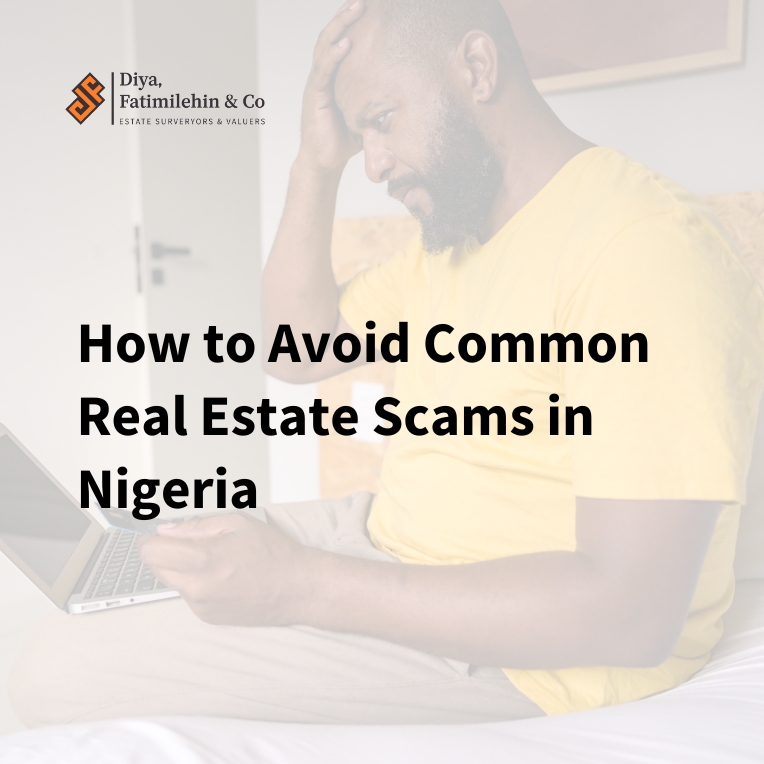The Nigerian real estate market offers incredible opportunities, but not without its risks. One of the biggest threats is falling victim to real estate scams in Nigeria, which have cost many investors and homebuyers their hard-earned money. These scams range from fake property listings to fraudulent land deals, leaving people with financial losses.
We have compiled a list of the most common real estate scams in Nigeria and how you can avoid them.
1. Fake Property Listings
One of the most common real estate scams in Nigeria is fake property listings. Scammers create attractive listings for properties that either don’t exist or aren’t for sale. They use enticing prices to lure potential buyers or renters and request payment to “secure” the property. After the payment is made, the scammer disappears.
How to avoid it: Always verify property listings. Make sure you physically inspect the property before making any payments. Work with trusted real estate agents or platforms to reduce the risk of falling for fake listings.
2. ‘Omo Onile’ Scams
Omonile scams are infamous in Nigeria. These scams involve individuals or groups (often local landowners) falsely claiming ownership of a piece of land. Once you’ve purchased the land and begun construction, the real owner surfaces, leaving you with nothing.
This is one of the most sophisticated real estate scams in Nigeria because it plays on the fact that many land records are not digitized, making it easier for fraudsters to claim ownership.
How to avoid it: Conduct a thorough search at the local land registry to confirm the rightful owner before buying land. Ensure that a professional lawyer or surveyor legally verifies all documents.
3. Title Fraud
Title fraud is another common real estate scam in Nigeria. Scammers forge or alter property titles to sell properties that don’t belong to them. Sometimes, they even work with corrupt officials to make the documents look legitimate. Victims only realize they’ve been duped when the actual property owner shows up.
How to avoid it: Always verify the authenticity of the property title with the land registry. Hire a qualified lawyer to conduct a background check on the title before making any payments. This can save you from the heartbreak of being scammed.
4. Double Sale Scam
In the double sale scam, a property is sold to multiple buyers. The scammer collects payment from different individuals for the same property, leaving you in a legal battle over ownership. This type of real estate scam in Nigeria has caused endless frustration for many would-be homeowners.
How to avoid it: Always ensure the property you’re buying has a clear, traceable ownership history. Before you proceed with the transaction, engage a lawyer to check the property’s records at the land registry to confirm that it hasn’t been sold to someone else.
5. Renting Out a Property They Don’t Own
This type of scam occurs when fraudsters pose as landlords and rent out properties they don’t own. Once they’ve collected rent, deposits, and sometimes agency fees, they vanish, leaving you homeless and broke. This real estate scam in Nigeria particularly targets renters searching for affordable housing.
How to avoid it: Always confirm the landlord’s identity and ownership of the property. Speak to neighbors or visit the property management company to verify ownership. Additionally, request to see the original title documents before making any payments.
6. Unregistered Real Estate Agents
Working with unregistered real estate agents can open you up to scams. These so-called agents often advertise properties that are not legally available or are involved in fraudulent deals. They disappear once they’ve received their commission or advance payment, leaving you in the lurch.
How to avoid it: Only work with registered and licensed real estate agents like Diya, Fatimilehin & Co, with over 40 years of experience in the Nigerian real estate industry. Working with a credible agency like Diya, Fatimilehin & Co will significantly reduce your chances of falling victim to real estate scams in Nigeria.
7. False Auction Sales
Scammers sometimes organize fake property auctions, offering properties at suspiciously low prices. Once you’ve “won” the auction and paid the necessary fees, the auctioneer and the property disappear into thin air. This is another dangerous type of real estate scam in Nigeria, targeting buyers looking for a bargain.
How to avoid it: Be cautious of auctions that seem too good to be true. Before participating in any auction, verify the auctioneer’s credentials and confirm the legitimacy of the auction through official channels.
8. Uncompleted Building Scam
In this scam, fraudsters sell or rent out uncompleted buildings still under construction. Buyers or renters are lured in with promises of quick completion, but after paying, they discover that the building will never be completed or that the fraudster didn’t even own the building.
How to avoid it: If you’re considering buying an uncompleted building, ensure the ownership is legally confirmed and the project has all necessary permits. Before parting with any money, engage a professional to assess the viability of the construction project.
9. Overinflated Property Prices
Sometimes, unscrupulous sellers or agents artificially inflate the price of a property to cheat buyers out of more money than the property is worth. While this isn’t always an outright scam, it is unethical and a common problem in real estate deals.
How to avoid it: Research market prices in the area where the property is located. Don’t rely on just one agent or seller for property valuation; get multiple opinions to determine a fair price. This will help you avoid being overcharged in real estate scams in Nigeria.
10. Phantom Properties
Scammers create fake properties with elaborate stories and fake documents. These phantom properties don’t exist, but you’ll only realize this after paying a substantial amount of money to secure them. This is one of the most devastating real estate scams in Nigeria, especially for first-time buyers.
How to avoid it: Always conduct a physical inspection of the property before making any payments. Cross-check the property’s documentation and ensure everything checks out with the land registry. If a deal seems too good to be true, it probably is.

Real estate scams in Nigeria are all too common, but you can avoid them with proper diligence and careful research. Always take your time to verify all documents, confirm ownership, and consult professionals like lawyers and surveyors before making any payments.
If you’re looking to invest in real estate and want to avoid falling into any traps, reach out to Diya, Fatimilehin & Co. We offer transparent and reliable property deals to help you navigate the Nigerian real estate market safely.

